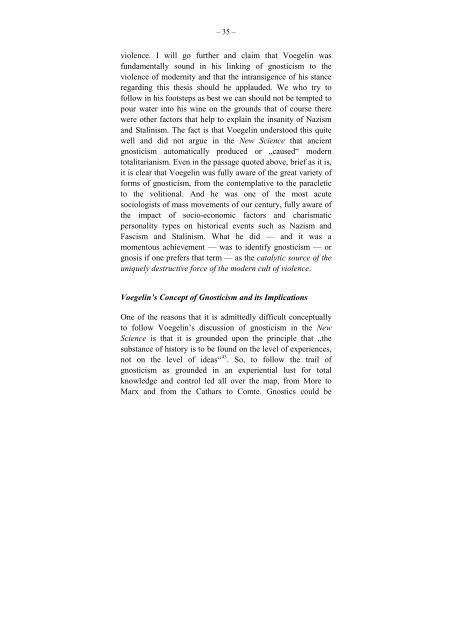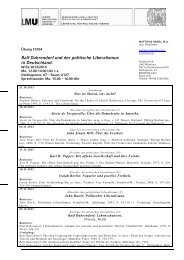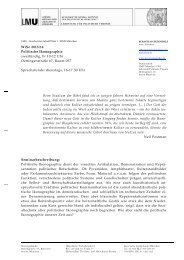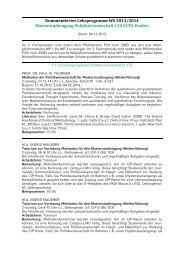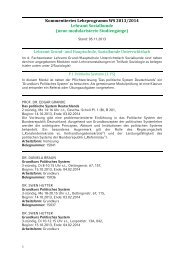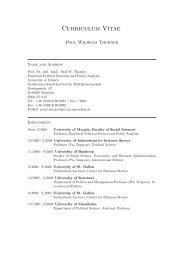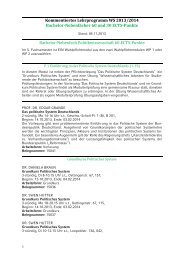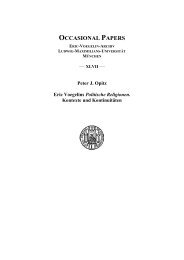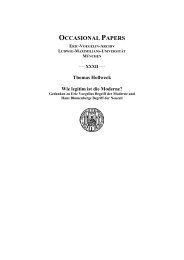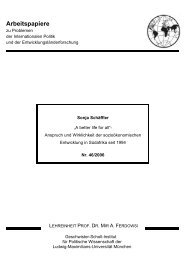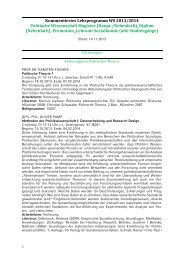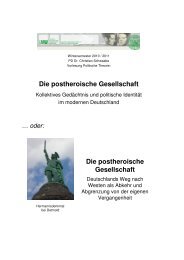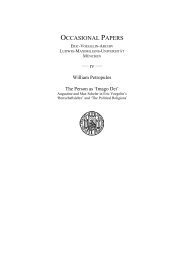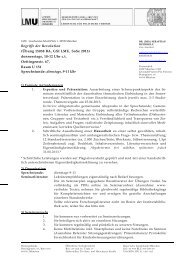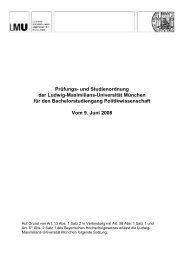Eric Voegelin.pdf - Geschwister-Scholl-Institut für Politikwissenschaft
Eric Voegelin.pdf - Geschwister-Scholl-Institut für Politikwissenschaft
Eric Voegelin.pdf - Geschwister-Scholl-Institut für Politikwissenschaft
Create successful ePaper yourself
Turn your PDF publications into a flip-book with our unique Google optimized e-Paper software.
– 35 –<br />
violence. I will go further and claim that <strong>Voegelin</strong> was<br />
fundamentally sound in his linking of gnosticism to the<br />
violence of modernity and that the intransigence of his stance<br />
regarding this thesis should be applauded. We who try to<br />
follow in his footsteps as best we can should not be tempted to<br />
pour water into his wine on the grounds that of course there<br />
were other factors that help to explain the insanity of Nazism<br />
and Stalinism. The fact is that <strong>Voegelin</strong> understood this quite<br />
well and did not argue in the New Science that ancient<br />
gnosticism automatically produced or „caused“ modern<br />
totalitarianism. Even in the passage quoted above, brief as it is,<br />
it is clear that <strong>Voegelin</strong> was fully aware of the great variety of<br />
forms of gnosticism, from the contemplative to the paracletic<br />
to the volitional. And he was one of the most acute<br />
sociologists of mass movements of our century, fully aware of<br />
the impact of socio-economic factors and charismatic<br />
personality types on historical events such as Nazism and<br />
Fascism and Stalinism. What he did — and it was a<br />
momentous achievement — was to identify gnosticism — or<br />
gnosis if one prefers that term — as the catalytic source of the<br />
uniquely destructive force of the modern cult of violence.<br />
<strong>Voegelin</strong>’s Concept of Gnosticism and its Implications<br />
One of the reasons that it is admittedly difficult conceptually<br />
to follow <strong>Voegelin</strong>’s discussion of gnosticism in the New<br />
Science is that it is grounded upon the principle that „the<br />
substance of history is to be found on the level of experiences,<br />
not on the level of ideas“ 43 . So, to follow the trail of<br />
gnosticism as grounded in an experiential lust for total<br />
knowledge and control led all over the map, from More to<br />
Marx and from the Cathars to Comte. Gnostics could be


